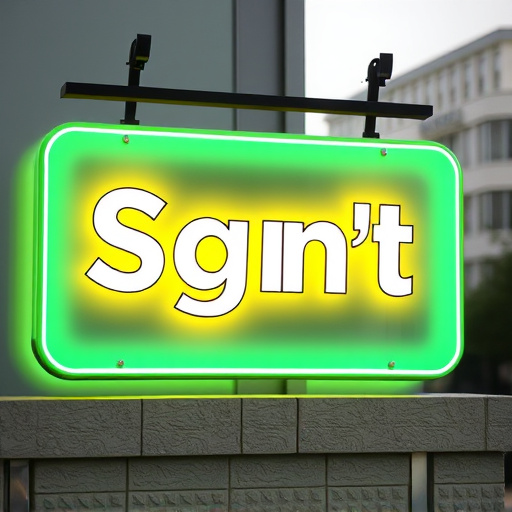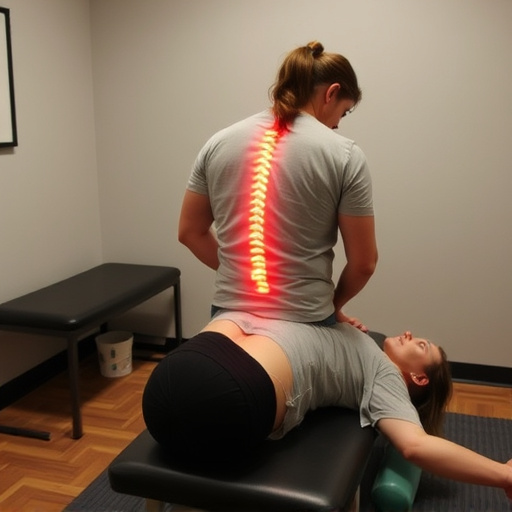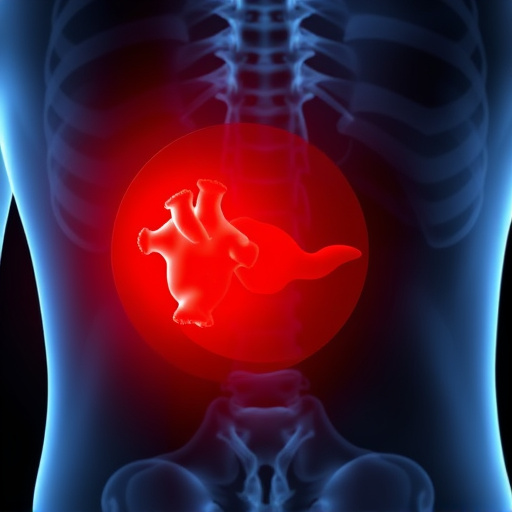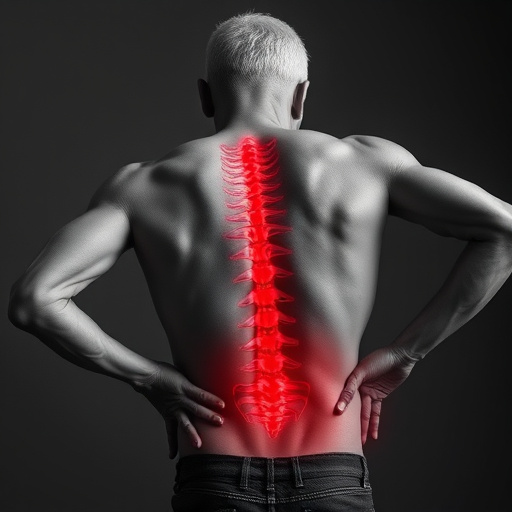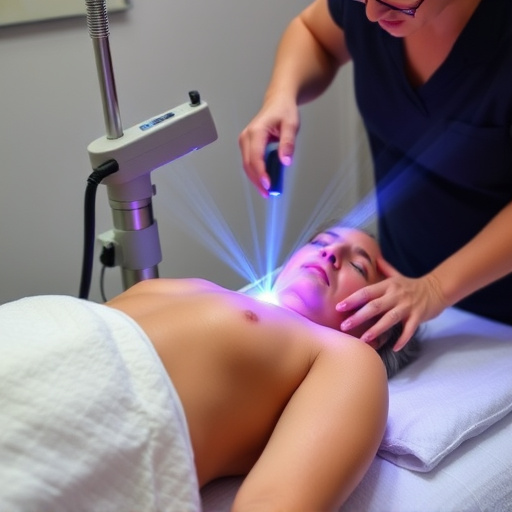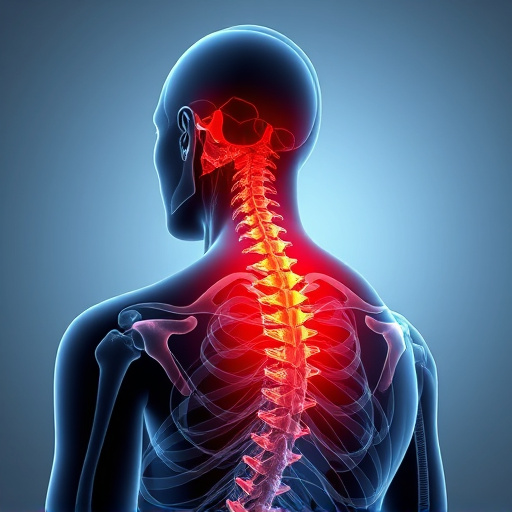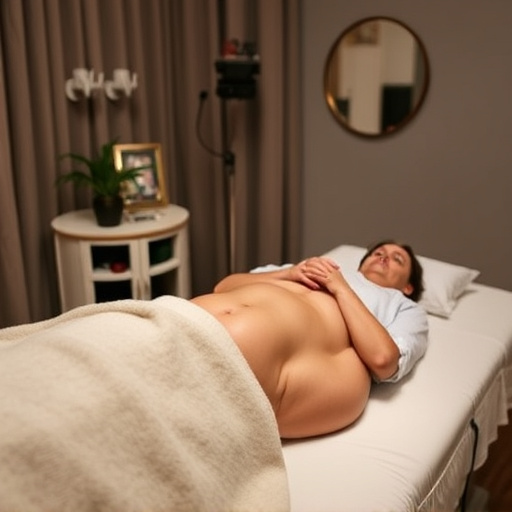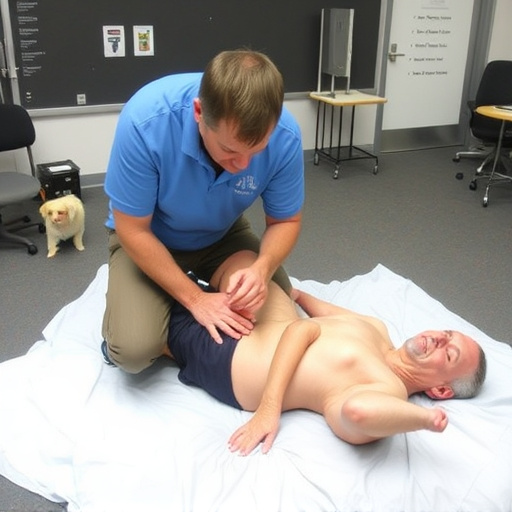Herniated disc treatment focuses on early recognition and personalized wellness care. Non-surgical approaches like physical therapy, spinal decompression, and injections alleviate symptoms, with physical therapy strengthening muscles and improving flexibility for acute and chronic lower back pain, including sciatica relief. Lifestyle changes are crucial for optimizing recovery and preventing future episodes of lower back pain.
A herniated disc can cause significant discomfort and limit mobility, but personalized treatment plans offer hope for relief. Understanding your condition starts with identifying causes and symptoms, such as pain radiating down the legs or arms. Specialist treatment options include non-surgical approaches like epidural steroid injections and chiropractic care. Personalized care focuses on physical therapy and lifestyle changes tailored to individual needs, empowering patients to manage their herniated disc effectively.
- Understanding Your Herniated Disc: Causes and Symptoms
- Specialist Treatment Options: Non-Surgical Approaches
- Personalized Care: Physical Therapy and Lifestyle Changes
Understanding Your Herniated Disc: Causes and Symptoms
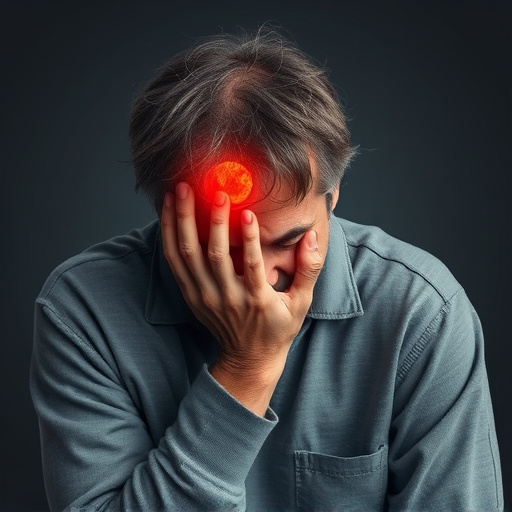
A herniated disc occurs when the soft, gel-like material inside an intervertebral disc pushes through a tear in its outer ring. This can put pressure on nearby nerves, leading to a range of symptoms. Understanding the causes and recognizing the signs early is crucial for effective herniated disc treatment.
The most common cause is wear and tear over time, as discs gradually lose their water content and flexibility. Sudden injuries, such as heavy lifting or car accidents, can also lead to herniation. Symptoms vary depending on the affected area, but may include sharp or aching back pain, numbness or tingling in the legs or arms, weakness in muscles, and chronic pain management challenges. For some, these symptoms subside with rest and conservative treatments like physical therapy. However, if left untreated or mismanaged, a herniated disc can cause long-term damage, making personalized wellness care and specialist consultation vital for effective recovery and prevention of future complications.
Specialist Treatment Options: Non-Surgical Approaches
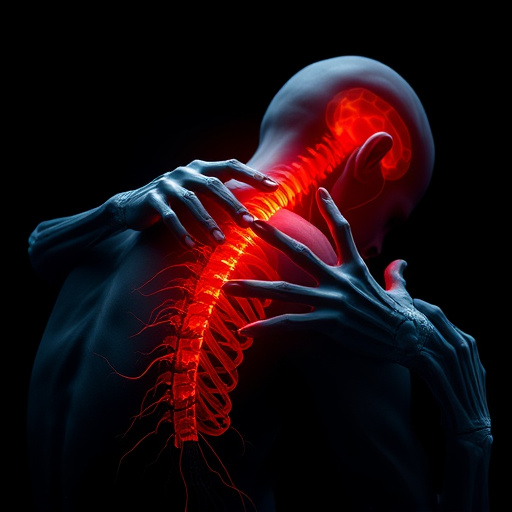
When it comes to non-surgical approaches for herniated disc treatment, specialists offer a range of effective options tailored to individual needs. One prominent method is physical therapy, which involves targeted exercises designed to strengthen the back and core muscles, improve flexibility, and reduce pain. Physical therapists may also employ manual techniques like chiropractic adjustments or massage to alleviate pressure on the affected area.
Another notable non-surgical treatment is spinal decompression therapy, which gently manipulates the spine to create space for compressed discs, relieving pressure and allowing for natural healing. Additionally, specialized injections, such as epidural steroid injections, can provide targeted pain management by reducing inflammation around the affected nerves. These treatments, often combined with rest and medication, offer comprehensive post-injury care, accelerating sports injury recovery and promoting overall disc health.
Personalized Care: Physical Therapy and Lifestyle Changes
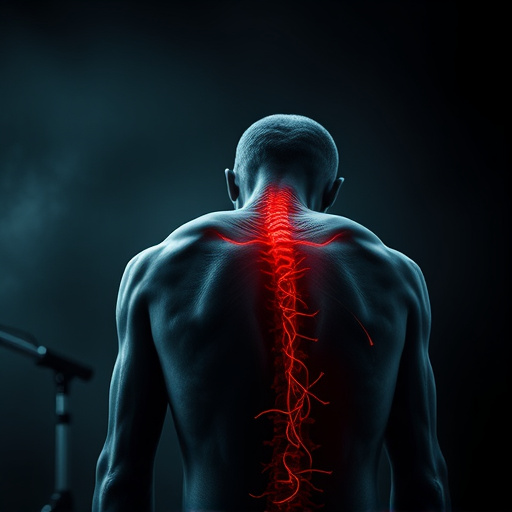
Personalized care is a cornerstone of effective herniated disc treatment. Physical therapy plays a pivotal role in managing both acute and chronic lower back pain, including sciatica relief. Specially tailored exercises can strengthen muscles supporting the spine, improve flexibility, and reduce pressure on affected discs. Physiotherapists often incorporate manual therapy techniques to relax tight muscles, relieve stiffness, and promote healing.
Beyond physical therapy, lifestyle changes are essential for optimizing herniated disc treatment. Adopting a healthy posture during daily activities, maintaining good lifting technique, and incorporating regular low-impact exercises can significantly reduce the risk of exacerbating soft tissue injuries. Additionally, stress management techniques and adequate sleep contribute to overall well-being, accelerating recovery and preventing future episodes of lower back pain.
In navigating the path to recovery from a herniated disc, seeking specialized care is pivotal. By combining non-surgical approaches with personalized physical therapy and lifestyle adjustments, individuals can find tailored solutions for effective herniated disc treatment. These comprehensive strategies not only alleviate symptoms but also empower patients to take charge of their well-being, fostering a stronger, healthier back.






